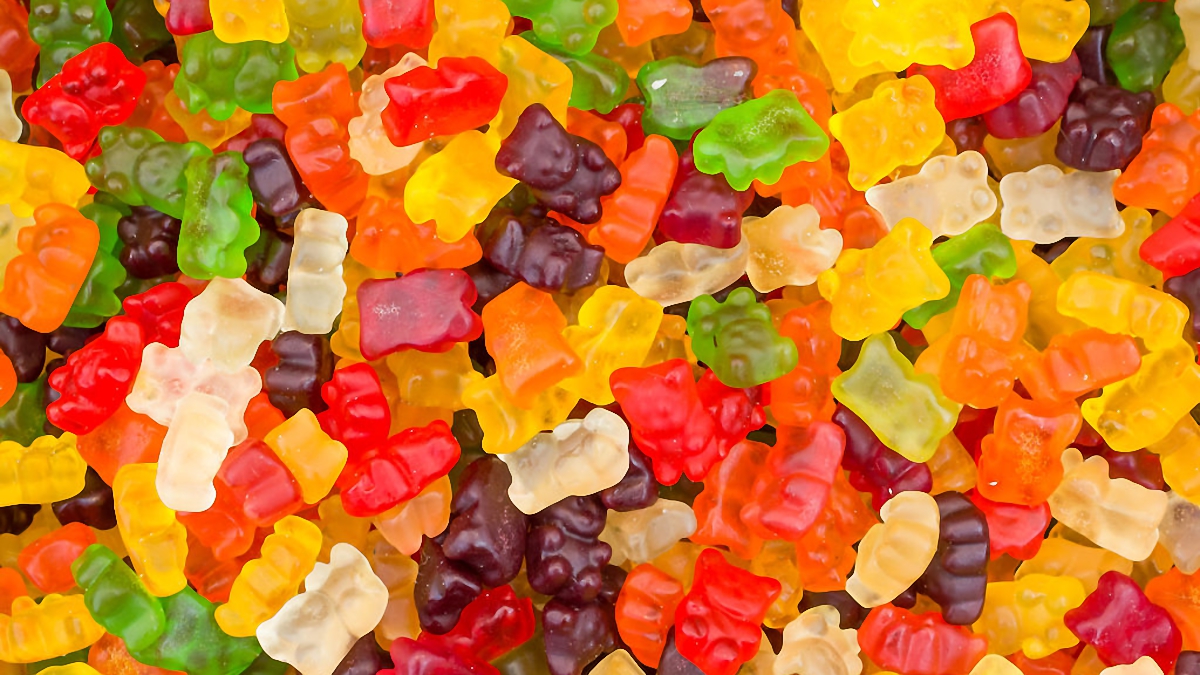Scientists have created a new range of plant-based gummies to ensure vegans and vegetarians don’t build up nutritional deficiencies.
It’s well know, as we’ve reported, that vegans and vegetarians are at elevated risk of nutritional deficiencies.
While some may welcome these new “healthy sweets” as a valuable nutritional development, others may ask, if the risk of nutritional deficiencies is “baked in” to being a vegetarian or vegan, why not just change your diet (assuming you can, of course)?
Gummies for vegetarians and vegans

There can be no doubt that plant-based diets are on the march globally. Millions of people follow vegan and vegetarian diets for religious, ethical, environmental or economic reasons. India, for religious reasons, has the highest number of vegetarians of any country, at around 200 million.
But for all their purported health benefits, plant-based diets also tend to lack certain essential nutrients, such as vitamins B12 and D3, unless supplementation or proper planning (to avoid the effects of anti-nutrients, for instance) takes place.
Some essential vitamins and minerals, such as vitamin B12, are found only in animal products, while others can be obtained from other sources. Although humans can make vitamin D3 through exposure to sunlight, many people aren’t outside enough to meet the requirement for this vitamin. Most therefore will primarily consume D3 through fish, eggs and organ meats, but these are not eaten by vegans and some vegetarians.
People who adhere to plant-based diets often take supplements to avoid deficiencies, but up to now it’s been a challenge to put both vitamin B12 and vitamin D3 in one pill because of their differing solubilities.
One solution is to put them into emulsion-filled gels, such as gummies. Previous researchers have shown that pectin, a plant-based polysaccharide, can be used as a gelling agent in animal product-free foods. So this is precisely what Samantha Pinho and her colleagues did, with the aim to produce gummies enriched with vitamins B12 and D3 that would be acceptable to consumers.
The researchers first made an emulsion, combining citrate buffer, inulin, gum arabic, flaxseed oil and vitamin D3, and separately made the pectin gel, dissolving a type of pectin, calcium chloride and vitamin B12 in a citrate buffer.
Then, by rapidly stirring the emulsion into the pectin gel with sugar, the team produced an emulsion-filled gel. The gel became reddish gummies after being dried.
To develop this into a suitable food product, the researchers added a natural strawberry flavor and molded the gel into half-inch-wide candies.
In subsequent taste tests, 120 untrained panelists gave the gummies high scores for taste, color, aroma and overall acceptability. About half of the panelists said they would buy the enriched gummies, with another 36% saying they might buy them.
Want your children to be stunted with weak bones? Feed them a vegan diet
A recent study has revealed that children raised on vegan diets are over an inch shorter and have weaker bones than the average. The study provides yet further evidence that plant-based diets are far from optimal for human health, despite the claims made by their advocates.
The study was conducted by University College London’s Great Ormond Street Institute of Child Health. As a result of the study, the Institute issued a warning to parents about the potential dangers of malnutrition for children made to eat vegan diets, and suggested that vegan children should undertake long-term supplementation with vitamins B12 and D.
Children on vegan diets were three centimetres shorter on average. They also had 4-6% lower bone mineral content and were more than three times as likely to be deficient in vitamin B-12 than omnivores.
Co-author, Professor Mary Fewtrell added: “Maximizing bone health in children is recommended with the aim of reducing future osteoporosis and fracture risk.
We found that vegan children had lower bone mass even after accounting for their smaller body and bone size. This means they may enter adolescence, a phase when bone-specific nutrient needs are higher, with a bone deficit already established.
If such deficits are caused by a diet that persists into adolescence, this might increase the risk of adverse bone outcomes later in life.”
Click here to read more about this study and the risks of vegetarian and vegan diets
Given that plant-based diets are now being advocated as the diets of the future, the issue of nutritional deficiencies will become more and more of a live issue as more people choose – or are forced – to transition away from meat.
Who knows, perhaps one day we’ll all be chewing gummies, rather than eating meat, eggs or dairy, to get our valuable B12? I, for one, hope that isn’t the case.

Don’t hesitate to email us at [email protected] for personalized coaching and a client questionnaire if you’d like DEDICATED tailor-made personal training on strength training, building muscle, losing fat, developing athleticism, and more — all to your liking, lifestyle, habits, and taste!
Otherwise, don’t forget to claim your FREE eBook detailing how to lose 20lb of fat while building muscle in 12 weeks! You can claim it here.
Alternatively, you can pick up a FREE eBook on fundamental strength principles offering an introductory workout program.











